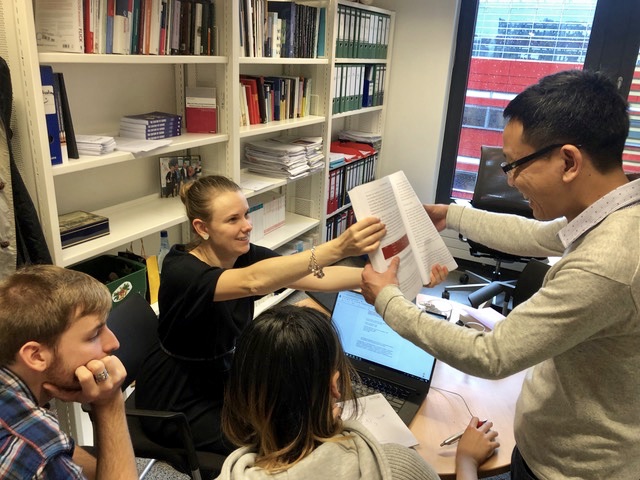The lecture series ‘Science of Science in the Spotlight’ aims to provide a forum for multidisciplinary exchange and dialogue across the fields of higher education research, bibliometrics, sociology of science, and history/philosophy of science in Luxembourg. The next lecture takes place [hybrid] on 8 March 2023 from 17:00 to 18:30 CET on the topic ‘Encoding Enlightenment’.
Speaker is Prof. Sean Takats, Professor of History and FNR PEARL Chair at the University of Luxembourg, Luxembourg Centre for Contemporary and Digital History (C²DH).
Abstract
How do researchers take ownership and responsibility for the work that we increasingly do with digital data, digital tools and digital methodologies? How do we peer inside technological and intellectual black boxes, and expose those inner workings to the outside world? This talk will examine the development and activities of diverse and collaborative research teams which have tried to address these problems through the creation of software tools for research. While today’s technological opportunities and challenges might appear new, we can trace such concerns back to the Enlightenment, when knowledge production and dissemination first began to operate on a similarly confounding scale. This historical perspective will inform our exploration
of current research innovation.
This lecture will take place in hybrid format on 8 March from 17:00 to 18:30 CET.
University of Luxembourg,
Campus Belval, MSH, Black Box
< Remote Webex Session Meeting number: 2731 314 7776
Password: W3kaJSPgU36
About the lecture series
Through international visits and collaboration with leading experts in the relevant research fields and disciplines, the Lecture Series offers an ideal platform to bolster Luxembourg’s growing research expertise and current initiatives in the “Science of Science”, including diverse science and policy communities and the wider public.
A multidisciplinary series of events, these lectures provide diverse insights and solidify Luxembourg’s networks in this global field of research, to build new relationships, and to encourage a multidisciplinary, interfaculty, and interorganizational exchange with leading researchers from abroad.
Leading researchers visiting Luxembourg will share their knowledge at the intersection of higher education research, bibliometrics, sociology of science, and history/philosophy of science—embedded in social and computational sciences more generally.
Discussions relate to such topics as historical and philosophical views on international higher education developments in different countries, inequalities in science, scientific knowledge production and collaborative networks, data-sharing, research policy and its impact on evidence-based decision-making processes.
Previous lectures can be re-watched on the University of Luxembourg website.
The series is at the intersection of different strands of research that has grown in Luxembourg over the past decade. The lectures showcase emerging collaboration patterns within Luxembourg, across Europe, and globally. It provides opportunities to discuss cutting-edge research results in this highly innovative multidisciplinary field of research. The lectures stimulate debates on theoretical and methodological approaches and on data acquisition and analysis.
This lecture series is supported through the FNR’s RESCOM programme, through which the FNR supports communication between researchers to promote scientific outcomes. The lecture series is organised by social scientist Jennifer Dusdal (University of Luxembourg).



